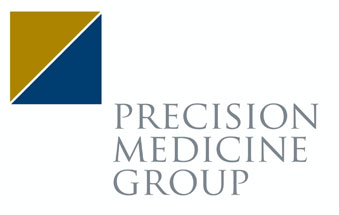Proxy Season Preview
The Harvard Law School Forum Governance blog published a report last week reviewing key themes from recent conversations with governance specialists from more than 60 institutional investors, representing over $38T in assets under management. The full report can be found here, and the take home message is the drumbeat for ESG initiatives is only growing louder.
Specifically key findings re: top investor engagement priorities are as follows:
- 2/3 of investors will press for robust diversity disclosures, across both the workforce and board. Most investors will be asking for disclosures aligned to the framework of the U.S. Equal Employment Opportunity Commission’s EEO-1 Survey, considering not only racial diversity, but others as well, including age demographics. At the board level, investors want disclosure of the board’s diversity across gender, race and ethnicity, and to see diverse directors brought into the boardroom and policies that encourage diverse director recruitment.
- 2/3 of investors will prioritize climate risk, and are interested in seeing company disclosures aligned with the recommendations of the Task Force on Climate-related Financial Disclosures, which include disclosures related to the governance, strategy, risk management approach and metrics and targets used relative to climate-related risks and opportunities. Some investors are also requesting companies to commit to net-zero greenhouse gas (GHG) emissions by 2050, adopt science-based GHG reduction targets aligned to the goal of the Paris Agreement, conduct climate-related scenario analysis and adopt renewable energy targets.
- 1/3 of investors will prioritize executive pay, with a focus on decisions related to the impacts of COVID-19, particularly how executive pay aligns with decisions related to the broader workforce (e.g., pay cuts, furloughs, and layoffs).
- 1/4 of investors are prioritizing human capital management, with a focus on the health and safety of the workforce as the pandemic continues, as well as how companies are thinking about human capital strategy in a post-pandemic future.
On a related note, also last week, members of the Corporate Call to Action: Coalition for Equity and Opportunity announced commitments to publicly disclose their own EEO-1, or workplace demographic, data (see full announcement here). This includes firms such as Aberdeen Standard Investments, AllianceBernstein, Bridgewater Associates, Franklin Templeton, Invesco Ltd., Schroder Investment Management North America Inc., The Hartford, Teachers Insurance and Annuity Association of America, Vista Equity Partners, Wellington Management, UBS, Bank of America, BlackRock, Goldman Sachs, Morgan Stanley, State Street Global Advisors, and T. Rowe Price Group, Inc. The Coalition, which was launched in September 2020, represents $26T in assets, and was founded to confront long-standing economic disparities based on race in the U.S. and their impact on the nation’s economy.
SEC Guidance: Disclosures Specific to Financing During Periods of Extreme Stock Price Volatility
Last week, clearly in response to trading in GameStop and other stocks driven to meteoric highs by retail and hedge fund investors using the Reddit online trading platform, the SEC’s Division of Corporate Finance issued a sample comment letter for companies conducting securities offerings during times of extreme price volatility – when the stock has run-up significantly; when there’s high short interest or a reported short squeeze; or in the face of atypical retail interest. In other words, addressing additional disclosures when companies raise capital taking advantage following a steep increase in stock price.
The SEC suggests that when a company tries to raise money under these circumstances, certain tailored disclosures about market events and conditions, the company’s situation and the potential impact on investors is necessary to provide investors the information they need to make an informed decision. In particular, the SEC wants companies to consider disclosing the following on the prospectus cover page:
- A description of recent stock price volatility in the company’s stock and any known risks of investing in the stock under the circumstances
- Comparative stock price information prior to recent volatility and any recent change (or lack thereof) in the company’s financial condition or results of operation that are consistent with the recent stock price change
- Any recent change in the company’s financial condition or results of operations, such as earnings, revenues or other measure of company value that is consistent with the recent change in your stock price – if no such change to financial condition or results of operations exists, disclose that fact.
Additionally, the SEC suggests that companies provide information about potential risk factors addressing the recent extreme volatility in a company’s stock price, effects of a potential “short squeeze,” the potential impact of the offering on a company’s stock price and investors and the potential dilutive impact of future offerings on investors purchasing shares in the current offering, and that the use of proceeds disclose the possibility that they may not be successful in raising the maximum offering amount and the priorities for proceeds received.
The SEC’s full sample letter can be found here.
Another Royalty Player
Sagard Holdings raised $725 million for a new fund that will purchase royalties in drugs, diagnostics and medical products. The fund, called Sagard Healthcare Royalty Partners, will be led by David MacNaughtan and focus on the small to mid-sized end of the market, and has already made several investments, including a deal with Athenex in August 2020. Sagard follows in the footsteps of several investment firms that have entered the space in recent years, including Blackstone, OrbiMed and HealthCare Royalty Partners.
Private Capital Continues to Flow into Biotech
Advent Life Sciences launched two funds totaling $215M. The focus of the new funds, Advent Life Sciences Fund III and the Advent-Harrington Impact Fund, will largely be on drug discovery. The funds are seeking roughly 15 to 18 new seed or Series A investments over the next four years.
Alta Partners raised $275M for their newest fund “NextGen Fund III,” which will target investment opportunities in curative, breakthrough therapeutics and technology-enabled healthcare services.
Market Update: This week the markets were stable, with the NASDAQ closing down 1%, and the DJI and S&P 500 closing flat. The VIX was up about 4% sitting at 22.09 as of market close on 2/18. The biotech markets trended down, with the NBI, BTK and XBI closing down 3%, 6% and 3% respectively.
Over the last two weeks, the financing markets continued to be extremely receptive with many deals pricing, including:
- 10 IPOs: Adagene ($161M); Biophytis ($20M); Bioventus ($104M); Stern IR client Decibel ($127M); Hepion ($82M); Longeveron ($27M); Neximmune ($126.5M); Signify Health ($609M); Talis ($254M); Virpax ($18M).
- Over 30 follow-ons including: Stern IR client Adicet ($152M); Stern IR client Antibe ($28M); Applied Therapeutics ($69M); Aravive ($21M); Autolus ($115M); Stern IR client Ayala ($25M); Stern IR client Bio-Path ($13M); Caladrius ($65M); Cassava ($200M); Citius ($77M); ConforMIS ($85M); Essa ($130M); Stern IR client Gamida Cell ($75M); Infinity ($92M); KalVista ($223M); Mereo ($115M); Molecular Templates ($76M); Stern IR client Stealth ($5M); SQZ ($60M); TherapeuticsMD ($97M); Travere ($202M); Veru ($100M); Y-mAbs ($100M); Zomedica ($200M).
- Over 10 private financings, including: Cambrian (Undisclosed, $60M); Centessa (Series A, $250 Million); Cyteir (Series C, $80M); Day One Bio (Series B, $130M); Ensoma (Series A, $70M); Evox Therapeutics (Series C, $95M); Excision BioTherapeutics (Undisclosed, $60M); HemoShear (Series A, $40M); Immunai (Series A, $60M); Notch (Series A, $85M); Personal Genome (Series C, $1o3M); Pipeline (Series C, $80M); Stern IR client QuellTX (Series A, $84M); Sagimet (Crossover, $80M); SpyBiotech (Series A, $33M).

